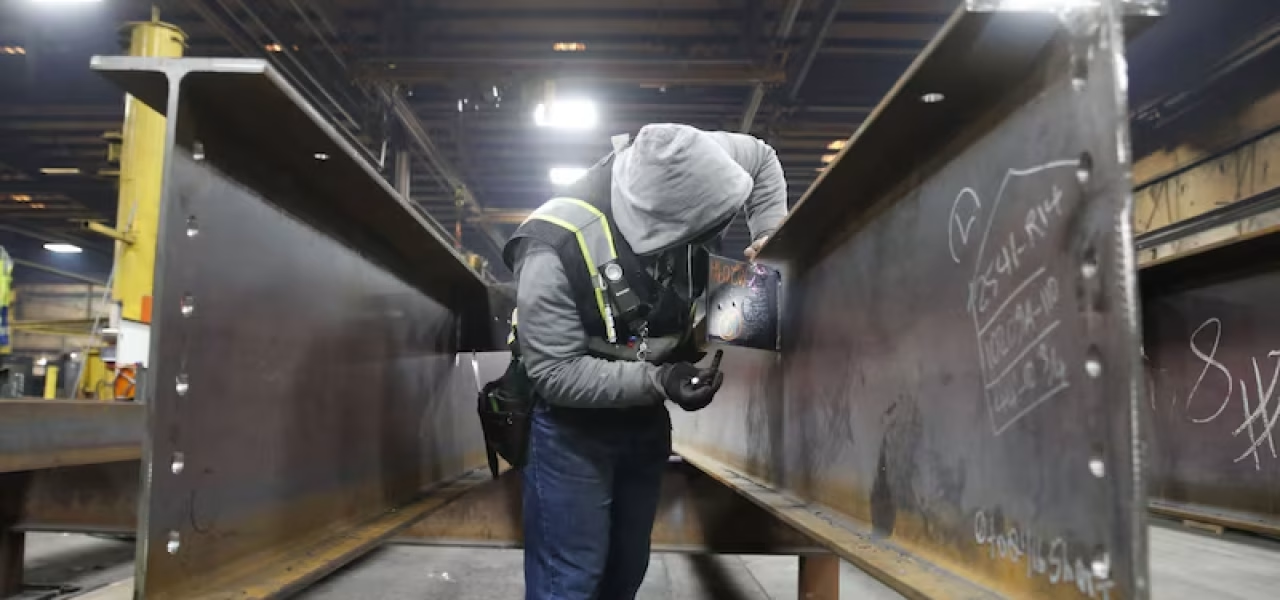Mexico City – Companies in the automotive and steel industry have resorted to technical stoppages to avoid terminating workers in face of the tariff blow that the sector is suffering because of the tariffs imposed by President Donald Trump on automobiles, steel and aluminum.
Formal employment in Mexico has decelerated as tariffs on exports to the United States have been entering into force; nevertheless, the automotive and steel industries have made an effort to maintain their workforces and have negotiated technical stoppages with unions.
Tereso Medina, general secretary of the Confederation of Workers of the State of Coahuila of the CTM [Confederation of Mexican Workers], said in an interview that Mexico has received hostile treatment from the Trump administration, which has halted new personnel hiring.
“There has been no growth in employment and unions have accepted an unpopular measure, namely technical strikes, in order to somehow maintain the workforce and prevent layoffs.”
Tereso Medina general secretary of the Confederation of Workers of the State of Coahuila of the CTM
Workers have received 70% of their salary during the technical stoppages and benefits have been maintained. A technical stoppage is a temporary suspension of activities in a company and is mutually agreed upon by the company and the union.
“This is what I call sacrifice plays between the company and the union because, even though it is unpopular, it is preferable to allowing workers to be laid off”, the union leader with a collective bargaining agreement at the General Motors plant located in the automotive corridor at Ramos Arizpe, Coahuila pointed out.
General Motors announced on June 10 that it will move part of its production from Mexico to the United States in order to circumvent Trump’s tariffs.
The company plans to move the production of several of the best-selling models; with this move it is planning to add between 3,000 and 4,000 job positions in the United States when production is in full operation.
Medina said that the company has not yet officially informed the union about moving production to the United States, but he considered that in the event that this scenario should come to pass, it would not be until 2027.
The leader emphasized that the Coahuila plant, with 6,500 workers, is working normally and that there have been no job losses so far.
General Motors told Bloomberg Línea that its Chevrolet Equinox model will continue to be produced in Mexico, specifically in San Luis Potosí, but that its production will also take place in the United States starting in 2027.
In regard to the Ramos Arizpe plant, in Coahuila, it will continue to produce the current gasoline version of the Chevrolet Blazer, as well as the Chevrolet Equinox EV, Blazer EV and Cadillac OPTIQ models.
“The four plants located in Mexico will continue in operation and will continue to be an essential part of the company’s global manufacturing footprint”, said GM in its statement.
President Trump imposed a 25% tariff on certain automobile imports, that entered into force on April 3, 2025, and on certain auto parts imports, that entered into force on May 3, 2025.
On May 20 Trump´s government proclaimed tariff reductions for the automotive industry, which is under the United States-Mexico-Canada Agreement (USMCA), which constitutes preferential treatment for automobiles and auto parts exported into the United States from Mexico.
There are 37 vehicle assembly plants in Mexico, employing 104,000 employees, according to information from the Mexican Automotive Industry Association (AMIA).
The steel industry is affected
Companies belonging to the Steel industry in Mexico are also resorting to technical stoppages in an effort to save the workforce and are implementing salary and working hour reductions to prevent people from losing their jobs.
Napoleón Gómez Urrutia, general secretary of the Miner’s Union, told Bloomberg Línea that, up until now, there have been no massive layoffs in the industry, but he pointed out that some companies have wanted to make technical stoppages.
Ricardo Martínez Rojas, founding partner of the De La Vega & Martínez Rojas Law Firm, said in an interview that Trump’s tariffs are causing great harm to automotive and steel companies, who have had to implement measures such as technical stoppages, although he did not rule out factory closures.
“If they are going to apply high tariffs on auto parts, on the automotive industry and on other industries and we need to save jobs, how do we save them? By reducing working hours, making reductions on salaries that are proportional to the working hours in order for jobs to subsist and the employment source not to be extinguished.”
Ricardo Martínez Rojas, founding partner of the De La Vega & Martínez Rojas Law Firm
He stated that with these tariffs companies and unions have had to deal with formulas on flexibility and, therefore, it is also required that the Government “does not raise objections to” the agreements reached between companies and unions.
Martínez maintained that the steel production industry “has its hair standing on end” and is looking for a way to reduce the impact of the tariffs in order to be able to maintain the employment sources.
Trump imposed 25% tariffs on steel and aluminum, effective as of March 12, 2025, but on June 4, the president increased that tariff and implemented a 50% tariff on steel and aluminum imports.
The Mexican steel sector generates close to 700,000 direct and indirect jobs, with investments of $8.7 billion USD over the next few years within the framework of Plan Mexico, according to the Mexican Iron and Steel Industry Chamber (Canacero).
President Claudia Sheinbaum proposed to Trump in the global agreement that he end the uncertainty in regard to tariffs upon heading toward the revision of the USMCA.



